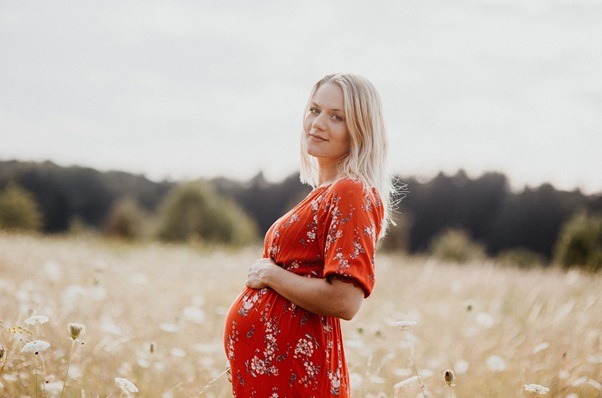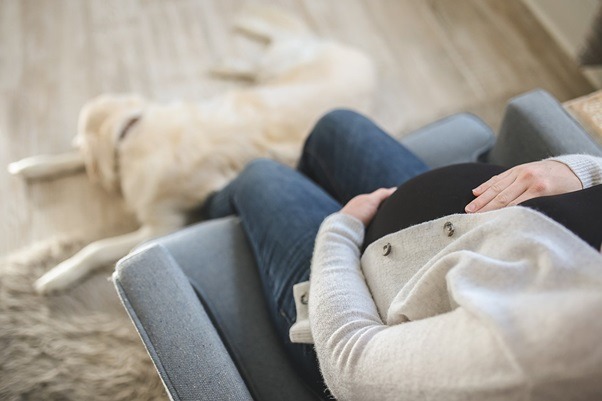Your nose might start running, you may sneeze a lot and sometimes your eyes may even swell up. These are all common allergy symptoms that are no fun to deal with in general, let alone when you’re pregnant and have a lot on your plate as it is. Dealing with a stuffy nose and itchy eyes can get in the way of your plans and it can sometimes be hard to get through your daily tasks if the symptoms are persistent enough. The good news is that there are some tips for treating allergies during pregnancy that can help you ease the symptoms and enjoy your pregnancy to the fullest.
1. Be Choosy About The Meds You Take
Whatever meds you’re used to using when it comes to treating allergy symptoms, it’s important to go over them with your doctor again now that you’re expecting. While antihistamines are commonly used for this, they may not be the best option for treating hay fever when pregnant because they might have adverse effects on the baby. As a general rule, you’ll want to avoid taking any meds that work by going into your bloodstream as those will eventually get to the baby as well, and it’s too small to be handling those kinds of medications in most cases. Going with a nasal spray and some eye drops is your best bet for the most part, and you can even get some that do contain certain antihistamines that shouldn’t cause an adverse reaction.
2. Air Purifier And Humidifier
Having an air purifier around while you’re pregnant can make a huge difference when it comes to all the allergy symptoms you might get. Many people find that they work best if they keep one in every room of the house, including their bedroom for when night falls and pollen counts are higher than usual. An air purifier reduces contaminants in the air, including pollution particles that may be causing you to feel all itchy and gross when you go about your day. Keeping the air moist is also important for making sure your allergy symptoms don’t get too much worse than they already are. If the air is too dry, it can get dehydrated and that can irritate you further. That’s why a humidifier is also a great idea for anyone looking to ease allergy symptoms while pregnant. Of course, there are air purifiers that come with fragrant smells, and while they may be nice on their own, it might be best to go with a scentless option while you’re expecting. If you’re working from an office, consider getting one of those for when you’re there as well.
3. Cleaning Your Home
There are a lot of allergens within a home that can cause mild allergic reactions, but when it’s allergy season, they can make a bad problem even worse. Things like dust, pollen, and even pet dander can make a pregnant woman’s allergy symptoms much worse, which is why it’s important to keep everything clean and tidy in order to prevent any additional problems. Vacuuming your home every day will help get rid of dust particles in the carpets that could be causing you grief, and you should also avoid using fabric softener when washing your clothes because it can leave behind a lot of additional allergens. If dusting makes you sneeze or you’re finding that your eyes are watery, consider using a face mask while you do it. Installing mosquito nets over your windows and changing your curtains can also help improve the air quality in your home, so be sure to do those whenever you’re able.
4. Going Outside
Controlling the air quality and allergens inside of your home is pretty easy, but you’re not going to be stuck inside during your entire pregnancy, which is why it’s important to take special care when going outside. The best way to handle this is to wear a face mask that will help filter out the allergens that are getting into your system and worsening your symptoms, and you should also try to steer clear of areas with large amounts of pollution such as congested roads. Adding some sunglasses and a nice hair scarf to the mix can also help so you don’t have to worry about getting something in your eyes or having pollen stuck in your hair. That said, you might want to wash your hair daily if your allergies are bad, in order to avoid getting any additional allergens in your home. When it comes to where you can go, just avoid places like a farmer’s market or a place where there are a lot of pollen-producing flowers growing.
5. Pets
Sometimes pregnancy can cause allergy symptoms to act up even more than normal. Even if you usually don’t mind pet hair, you might be more sensitive to it now, and that means you might need to change the arrangement you currently have. Every pet owner knows how cute it is when your cat or dog cuddles up with you, but you might have to cut down on those affectionate moments. Maybe make your bedroom a pet-free zone, or teach them to stay off the couch or any other piece of furniture you use often. If you have area rugs in your home that just seem to collect pet hair no matter how often you clean it, consider rolling it up and putting it in storage until after your baby comes. Regularly brushing your pet, and washing your hands as soon as you’re done petting them are also good ideas.
6. Go To The Doctor’s
If you’re already doing everything you have to keep your home or your office as allergen-free as possible, and you’ve already had your fill of eye drops and nasal sprays, but are still experiencing strong symptoms, it might be time to go see your doctor. While a lot of allergy meds aren’t recommended during pregnancy, there are some that doctors might be willing to prescribe you if the problem is severe enough. You can also ask your doctor about adding a saline nasal spray to your daily routine if you’re really struggling with congestion, and it’s always a good idea to carry around a small bottle of hand sanitizer as well.
Pregnancy and allergy season don’t mix well, but the good news is that there are ways to make things better! Keeping your home as allergen-free as you can, wearing a face mask when outside, avoiding areas with lots of pollution (congested roads), keeping your pets out of certain rooms in the house and washing your hands after touching them, and going to the doctor if your allergies are that bad can help you feel better when pregnant. A mild saline solution and some eye drops can also help alleviate some of the symptoms, and they shouldn’t have any adverse effects on the pregnancy.


